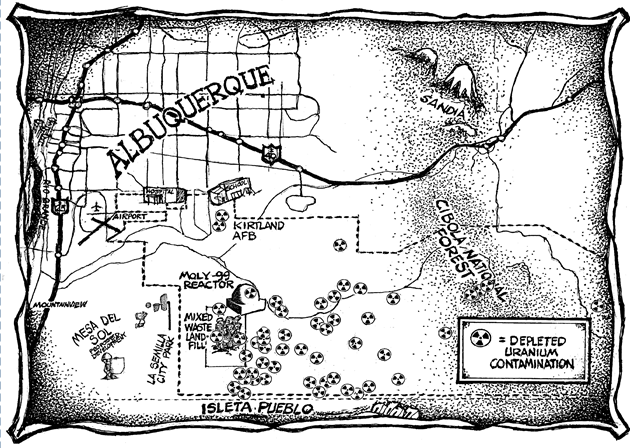
Southwest Research and Information Center
Files
Download Full Text (1.1 MB)
Document Type
Article
Date
5-18-2004
Description
The report summarizes the history and scope of the Uranium Mill Tailings Remedial Action Program (UMTRAP) effort, the current status of UMTRAP sites, on-going ground water remediation efforts, the cost of UMTRAP clean-up projects, estimates of future costs, and United States Department of Energy (DOE) recognition of UMTRAP as a model program.
Uranium mill tailings were among the first hazardous nuclear weapons production legacy wastes to be created as their production go back to 1940s and the places were uranium was first mined and milled in the US. The first several decades of uranium mining and milling were conducted with little or no effort to control radioactive or non-radioactive emissions from uranium mill tailings. UMTRCA established clean up requirements for all US uranium mill tailings sites.
This research was completed money allocated during Round 1 of the Citizens’ Monitoring and Technical Assessment Fund (MTA Fund). Clark University was named conservator of these works.
If you have any questions or concerns please contact us at digitalrepository@clarku.edu
Publisher
Southwest Research and Information Center
Format
Keywords
nuclear weapons, nuclear weapons testing, environment, non-governmental organizations, United States Department of Energy, tribal governments, environmental cleanup, radioactive fallout, radioactive waste
Rights
Copyright belongs to the authors. Clark University was chosen by the non-profit peace and environmental groups as the conservator of these reports; our right to distribute these works ensures they remain available to the public in perpetuity as intended. Reuse at your own discretion with with due deference to copyright holders.
Location
Albuquerque, NM
Recommended Citation
Robinson, Paul and Southwest Research and Information Center, "Uranium Mill Tailings Remediation Performed by the US DOE: An Overview" (2004). Southwest Research and Information Center. 2.
https://commons.clarku.edu/swresearch/2



